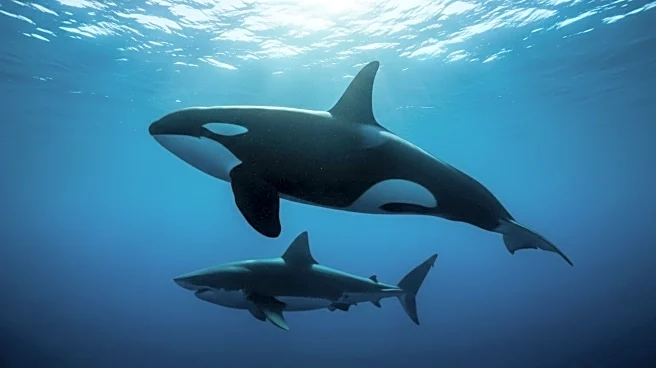What's Happening?
Recent research has revealed that orcas, also known as killer whales, are increasingly preying on great white sharks, challenging their status as apex predators. In Australian waters, orcas have been observed targeting the nutrient-rich livers of great whites, using intelligence and coordination to outmaneuver them. This behavior was confirmed when a great white shark carcass was found with its liver removed, and orca DNA was detected in the bite wounds. The rise of orca predation on sharks is causing shifts in marine ecosystems, as sharks abandon key hunting grounds.
Why It's Important?
The shift in predator dynamics could have significant implications for marine ecosystems. As orcas displace great white sharks, the balance of marine life may be disrupted, potentially affecting seal and fish populations. This change could lead to broader ecological impacts, altering food webs and the distribution of marine species. Understanding these interactions is crucial for marine conservation efforts and maintaining biodiversity.
Beyond the Headlines
The rise of orcas as apex predators highlights the complexity of marine ecosystems and the adaptability of species. Orcas' strategic hunting methods demonstrate their intelligence and ability to exploit new food sources. This development may prompt further research into predator-prey relationships and the long-term effects on oceanic environments.











